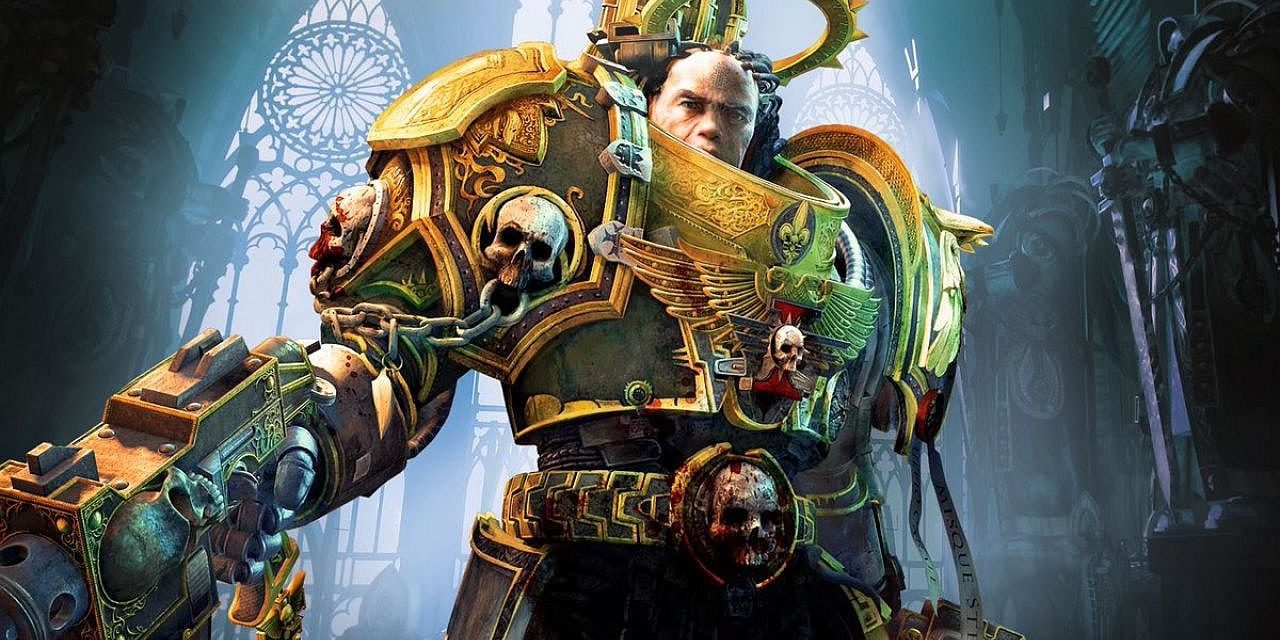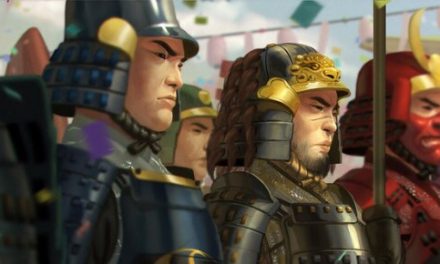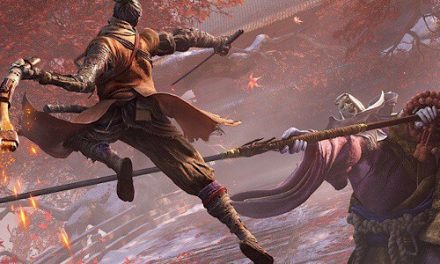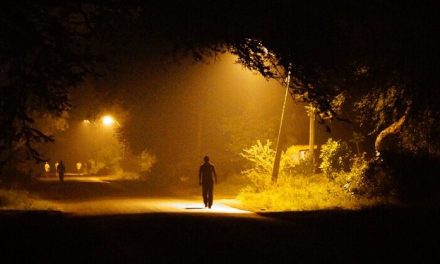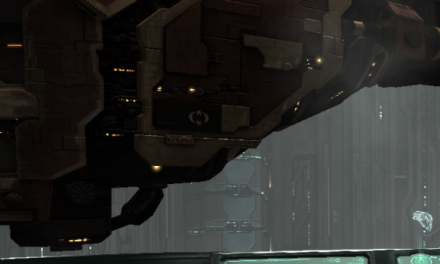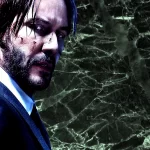In the grim darkness of the far future there is only war
Warhammer 40,000 is a product line from Games Workshop that includes table-top warfare with painted miniatures, role-playing games, novels, many computer games, and more. The basic premise is that humanity has been in a slow yet inexorable decline for centuries with an irreversible intellectual stagnation and endless galactic enemies. Soldiers and civilians alike are ground to dust—sometimes literally—by the ultra-fascist imperium government that works as much against humanity as it does against the alien forces at its door.
The setting is bleak and fruitless, with victories only small moments of relief in an unforgiving and actively regressive universe. A recent video essay by Overly Sarcastic Productions about the nature of “grimdark” media references the hopelessness that not only pervades but ultimately defines WH40k.
Each faction is terrible in their own way—from eldar (space elves) becoming so open-minded and accepting of every vice that they ripped a hole in reality, myconid orcs that only revere the thrill of slaughter, alien hive-minds that exist solely to devour whole worlds, and humanity’s own blindly zealous and totalitarian bureaucracy—there aren’t any groups who are, on the whole, striving for good, or anything approaching it.
The Space Marines, serving as the most iconic units in humanity’s army, are—depending on which conflicting account or sourcebook you read— genetically-engineered abominations which go through years of mental and psychological torture to mold them into the God-Emperor’s perfect soldiers. Their rites and rituals are both esoteric and profane, their traditions outlandish and insane. Of all the factions, humanity takes center stage most often in the 40k literature, and of them the Space Marines are the most common protagonist.
The original writers of the setting seemed to dive headlong into the unrealistic nature of the setting, to make everything from societal hierarchy to the way technology works a clear satire. Blind religious zeal and corrupted doctrine set humanity on a downward spiral from which they would never recover, blaming external forces for their downfall even as the powers at the top hasten it with their every action. Unrepentant acceptance of every opinion and vice destroyed the eldar’s home worlds and set them adrift in the cosmos. The gods of chaos, death, temptation, and vice are real entities looking for any moment of weakness or moral frailty to take root and spread their corruption.
A read of the initial design of the setting and games makes it clear that Games Workshop’s goal was to sell miniatures and have a sandbox wherein which they could add any kind of fluff they wanted, no matter how non-sensical. An elite program’s entrance exam is for a soldier to walk naked across a frozen continent non-stop for thirty days, with the reward being having to do it again? Sure! People feel a visceral terror at the sun going dark from evil spirits because as a space-faring species we inexplicably forgot what an eclipse was? Okay! Red cars going faster because that’s what red makes them do? No problem! Using floating skulls instead of calculators? I bet that will sell some figurines!
The problem with satire is some people believing it is earnest.
As the 40k franchise grew and expanded into more and more mediums, it seems to me that a smaller and smaller proportion of the staff were in on the gaff, that fewer and fewer understood that nothing portrayed was meant to be seen in a positive light. The stories got edgier and more badass, and less tongue-in-cheek. What (admittedly fleeting) moral lessons could be pulled from the context were drowned out by bigger guns, beefier muscles, and louder authoritarianism.
More than one person I have personally known—and no longer associate with—felt that the Imperium of Man was an effective governing body, and worthy of all imitation. They saw the horrible oppression as laudable because it was at the expense of people who were “others”; in 40k a moral failing (whether real or imagined) was inviting disaster and ruin, and needed to be excised at the source. They saw themselves in the role of the oppressor and not the oppressed, and could not understand that the system which had literal witch hunters on the lookout for “heresy” could be in any way a bad thing.
They saw humanity in 40k as doing what was necessary to fight against a rising tide of darkness, rather than being an active contributor to its own destruction. I don’t think they had the self-awareness to realize how that logic has been used—within our own lifetimes—to justify horrors against members of our own species, in the real world that we actually live in.
Protagonists are not automatically heroes.
Look at the character arcs of Rocky Balboa and John Rambo—bear with me here. In the first movies of their respective series they were down and out, struggling against a system that didn’t want or value them. They strive and they fight and yet ultimately they still fall short. In every subsequent movie however the characters become the epitome, the ideal of masculinity: kicking ass, toppling all opposition, being the hero. The stories went from being about an underdog who got close to the end-all, be-all, whether in the ring or in the jungle. The characters and stories largely became parodies of themselves, twisted so as to not be recognizable if looked at in contrast to their humble beginnings.
So too has the setting of 40k. Looking at humanity as a faction, they went from “look at how far society has fallen” to “these jackboot thugs are the saviors of the one true salvation.” What started off as satire and whimsy became dogmatic and uncomfortably believable, as if it were fan-fiction for what some people want the world to be like.
To me, the problem with Warhammer 40,000 as a body of fiction and entertainment is that it began to take itself too seriously, that the perverse and intentionally-outlandish (and insane) structures originally described somehow became gospel and a template for future contributors, without any of the nuance or intention that informed its creation. Without those, writers, readers, and consumers of the content leaned further and further into the “facts” of the setting and completely missed the themes that marked the whole thing as a joke.
These quotes, taken directly from the setting material, fall very squarely into Poe’s Law territory for me. Are they satire or are they serious? Do they evoke in the reader a positive or negative connotation? Will someone see these ideas and agree with them?
What is most scary to me, and this is a topic about which I’ve been meaning to write for some years, is that I can very clearly imagine each and every one of these examples being said, shouted, or admonished to a throng of believers who accept them at face value with no hint of irony or critical thinking.
- Compromise is akin to treachery
- A questioning mind betrays a treacherous soul
- All souls cry out for salvation
- An open mind is like a fortress with its gate unbarred and unguarded
- Doubt forms the path to damnation
- Faith grows from the barrel of a gun
- Forgiveness is a sign of weakness
Header image from Inquisitor Martyr by Games Workshop, et al

